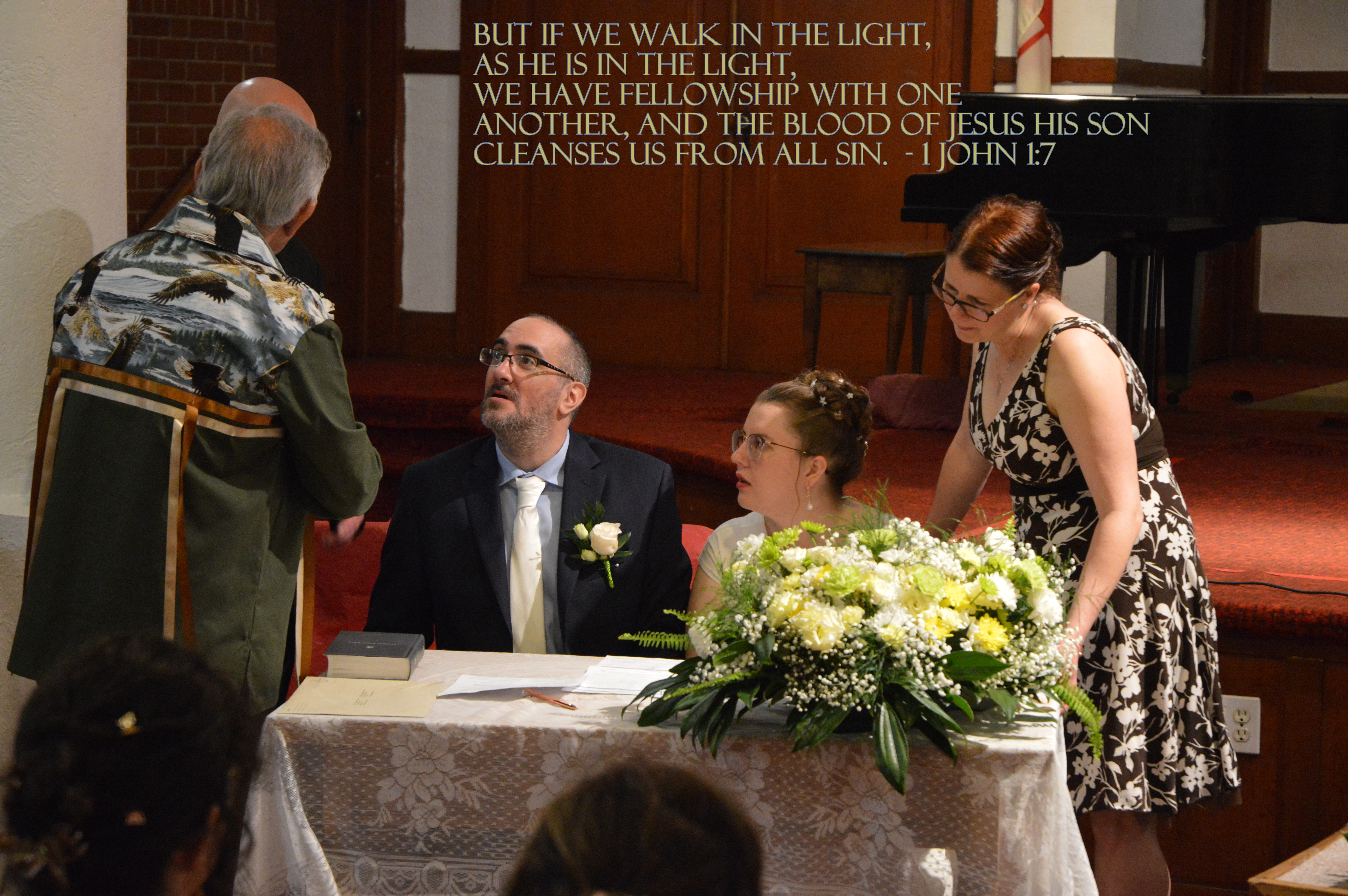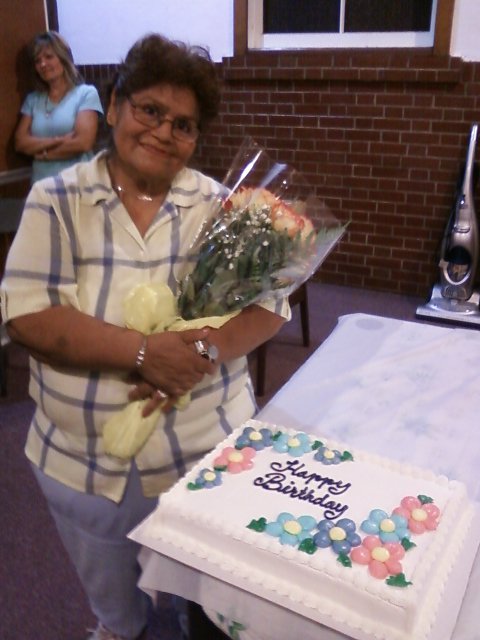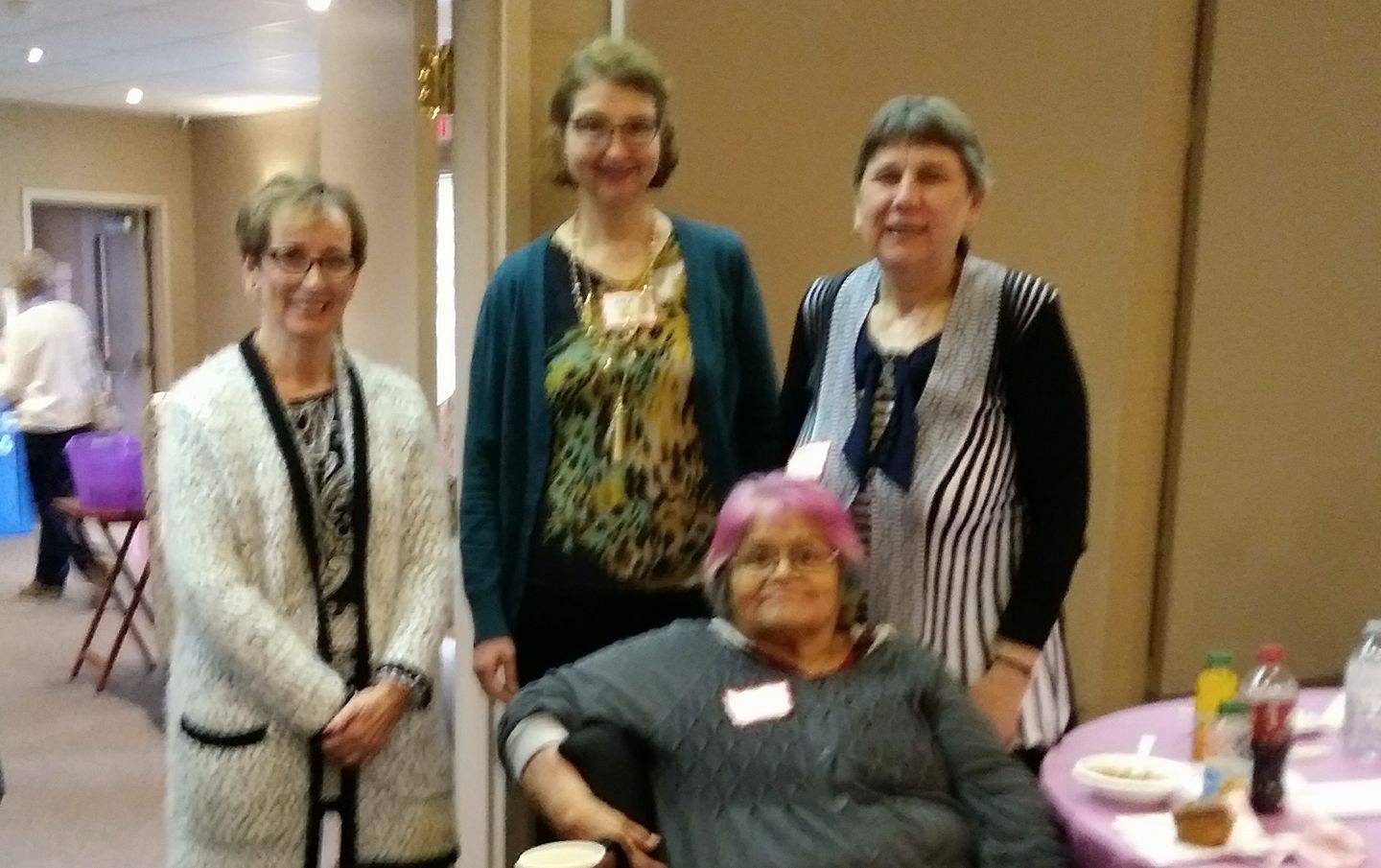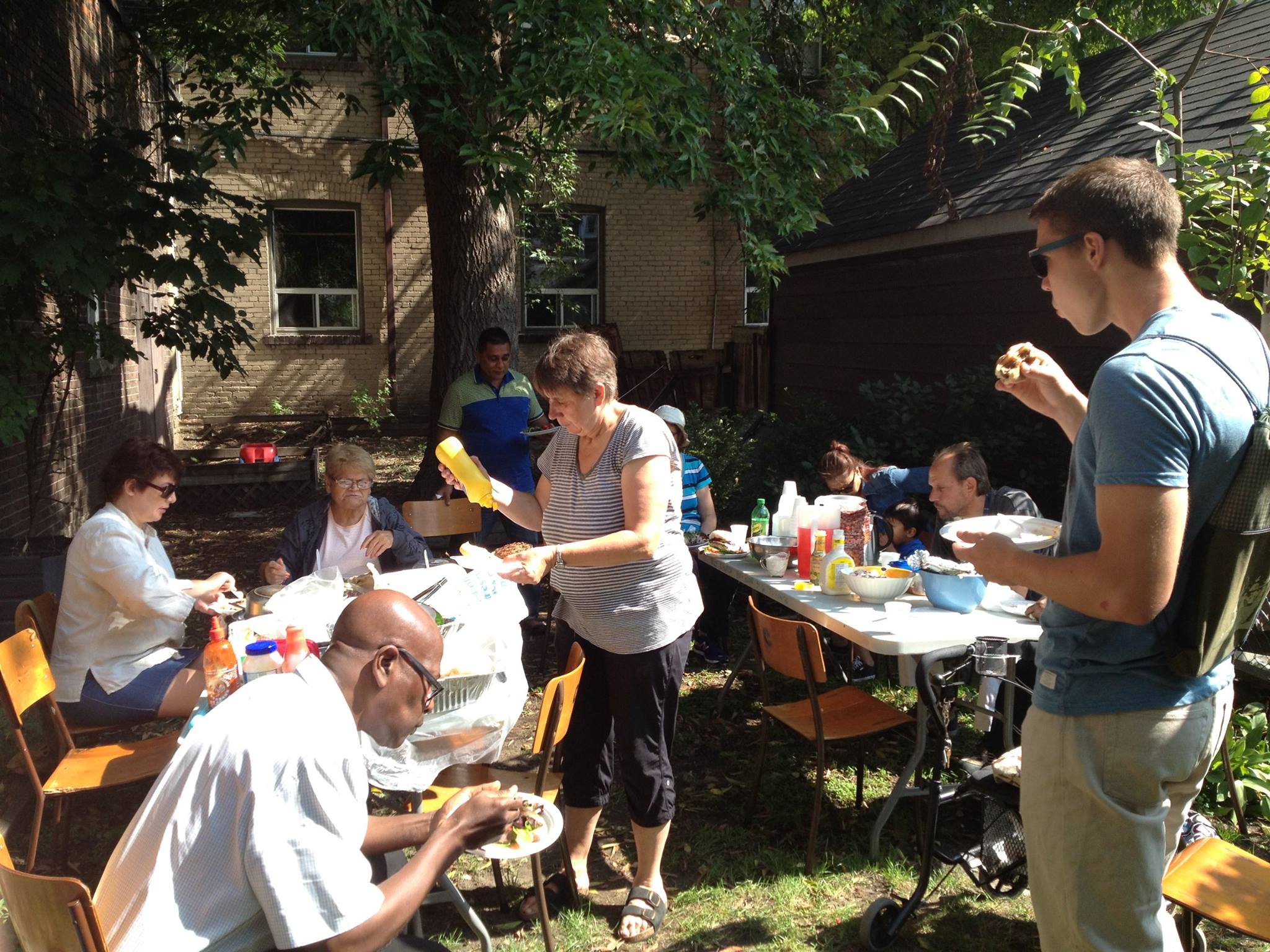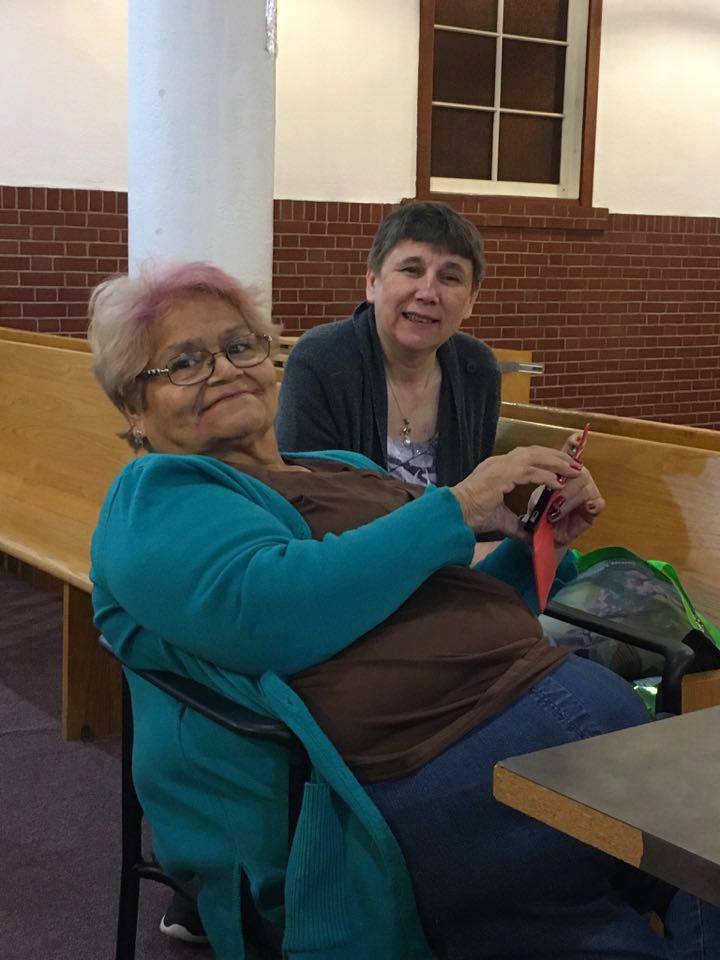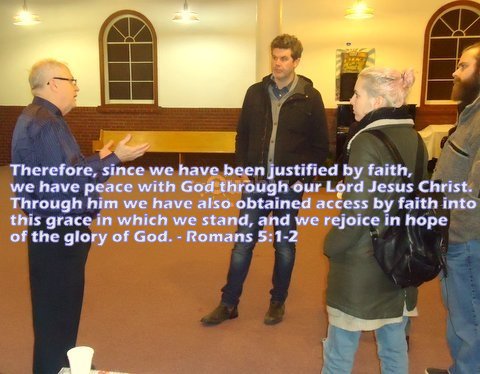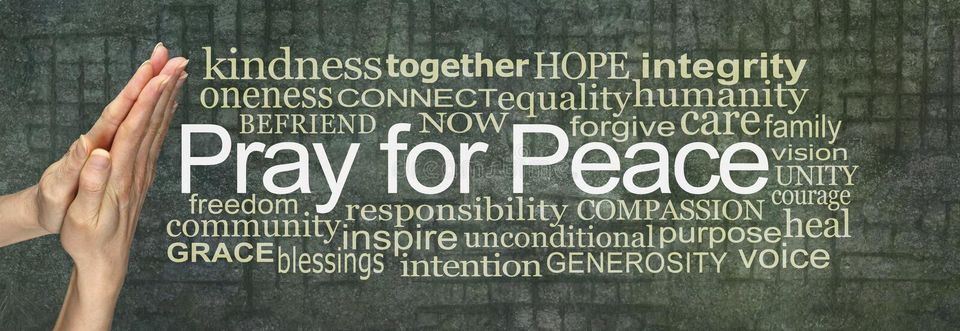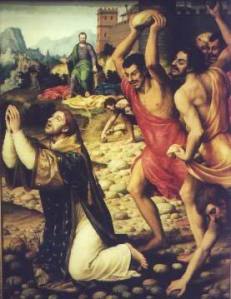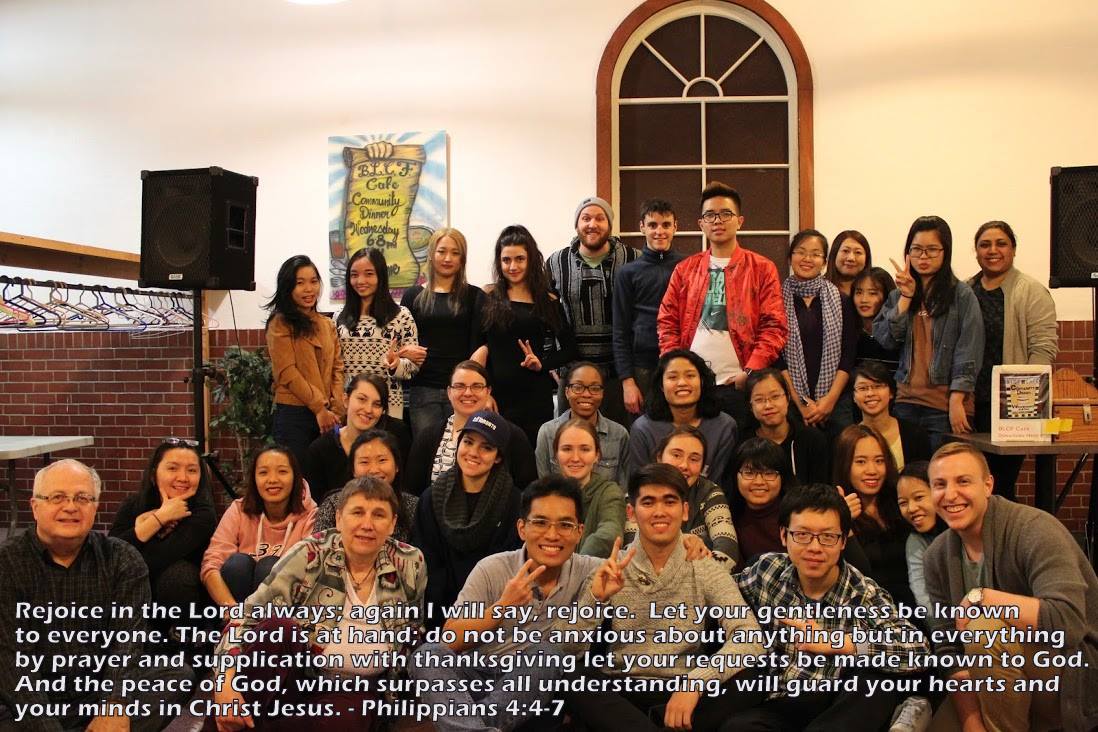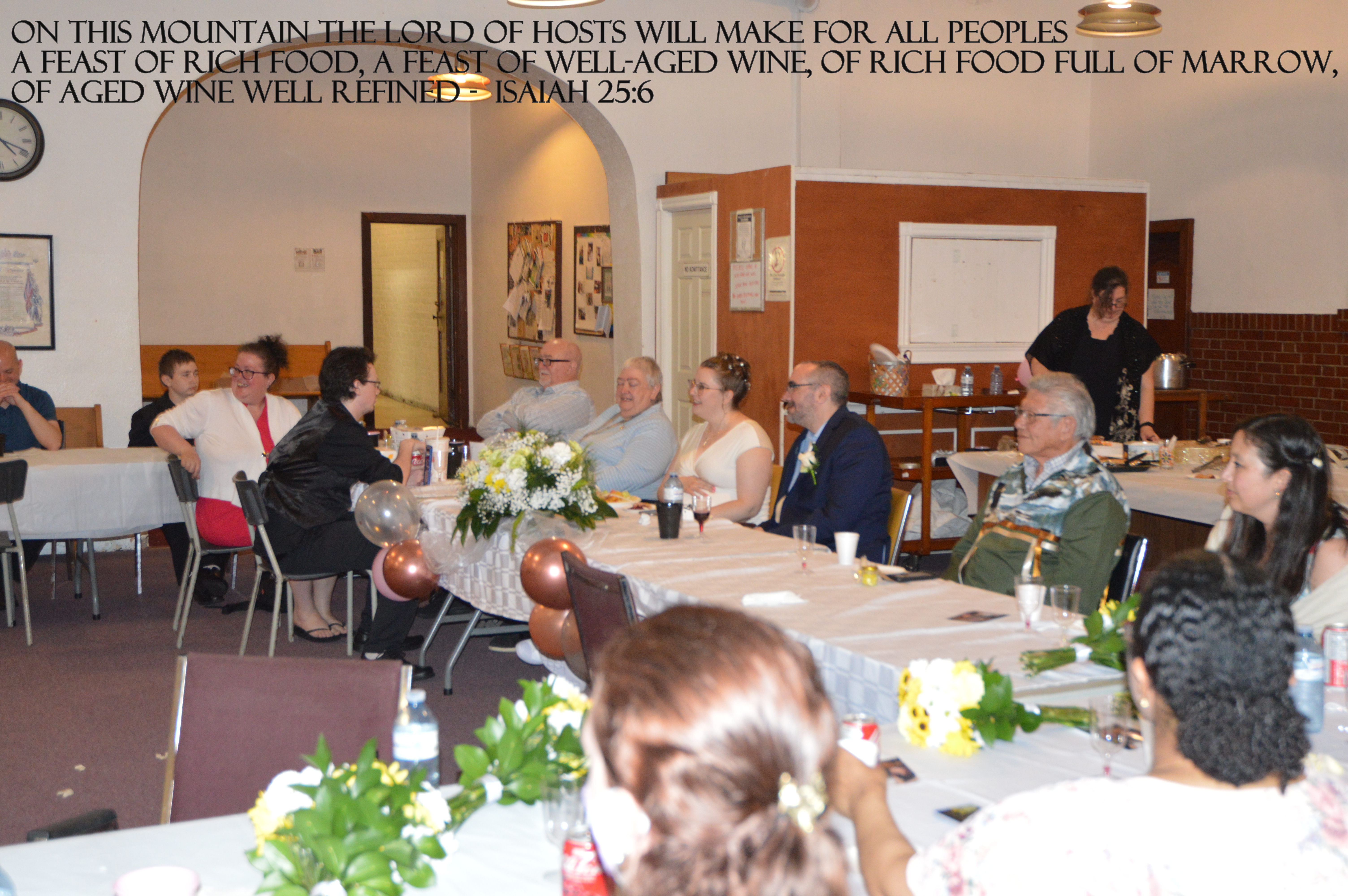

Bloor Lansdowne Christian Fellowship – BLCF Church Message for Sunday:
God’s Invitation to His Wedding Feast – RSVP
© May 26, 2024, by Steve Mickelson
Based on Messages Shared at BLCF on February 20, 2022, February 4, 2018, and January 8, 2012
BLCF Bulletin February 4, 2018

Announcements & Call to Worship of Prayer, Opening Prayer
Tithing and Prayers; Hymn #572: Praise God
Doxology (Praise God From Whom All Blessings Flow) Instrumental – https://www.youtube.com/watch?v=Mk4p3rihONU
Music Special Let us sing it in memory of our friend, Rosalie White: Lauren Daigle – To Know Me (Official Lyric Video) – https://youtu.be/cWQGJAhjFRc?si=vCRKdndXueX6lBDB
Music Special: Only By Grace – Fr. Rob Galea (with Lyrics) – https://youtu.be/e0AbftEuvkM?si=8bdEv665g-KPGQKR
Responsive Reading #655: The Final Word (Revelation 22)
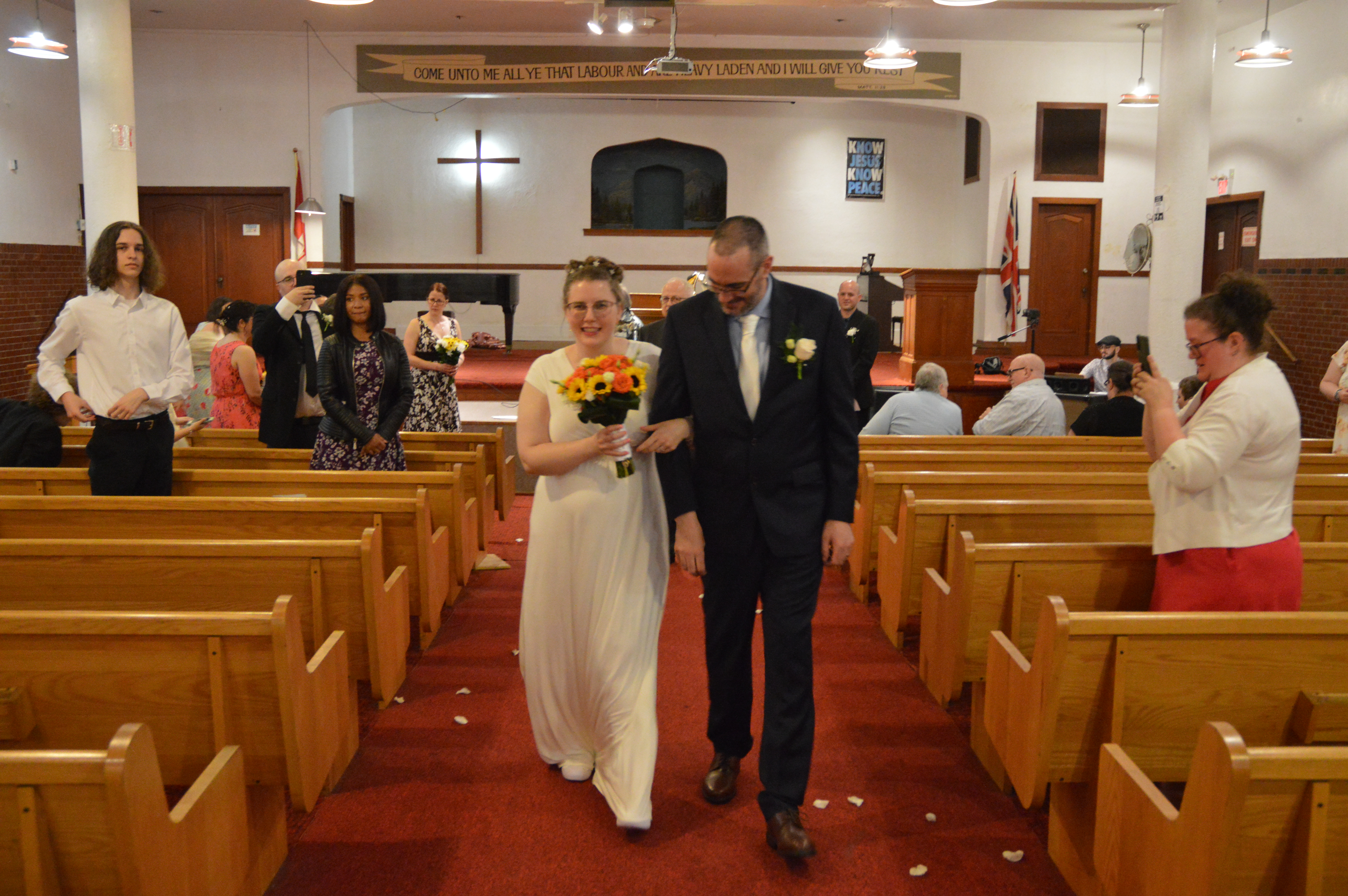
Message by Steve Mickelson: God’s Invitation to His Wedding Feast – RSVP
Let us pray…
The focus of our lesson today will be what we may learn from the Lord’s parable which Jesus described as the “king who gave a wedding feast for his son.”
A week ago, yesterday, my daughter Daniella married her fiancée, Sam, here at BLCF Church. The wedding consisted of a memorable service, followed by a joyful banquet celebration. The wedding was the culmination of many months of planning and preparation for the blessed event.
Not long ago, if you were to turn on the television, or YouTube you may see any of several reality shows about various aspects of the wedding, including such aspects as choosing a wedding planner, selecting the right wedding dress, the venue of the wedding, and the location for the reception. or four the brides who attend each other’s wedding and then rate various aspects of the weddings.
Millions of viewers also have watched one or all of the streaming royal weddings that have taken place in recent years from the UK. Only those with invitations were privy to the reception and the post-marital celebrations, which included a wedding banquet. It is appropriate that only those familiar with the wedding’s hosts and who appreciate the significance of the celebration to the bride and groom would be given an RSVP invitation to attend.
Most people enjoy attending and observing moments of nuptial bliss, where a bride and groom embark upon the journey of a new life together, not expecting to see reality show dramatics or royal pomp and circumstance in the event. We all can imagine the various elements involved in a wedding ceremony and the celebration that follows the exchange of vows, where a couple embarks upon a new life, united in both heart and spirit. The expectation of the invited is to witness a happy, joyful wedding, and a celebration afterward, which makes it not surprising to see that Jesus used a wedding banquet in Matthew 22:1-14, as a parable to illustrate God`s covenant for dealing with our sinful nature through Jesus and to illustrate the gospel of Jesus Christ, Matthew 22:1-14 (ESV):
The Parable of the Wedding Feast
And again Jesus spoke to them in parables, saying, “The kingdom of heaven may be compared to a king who gave a wedding feast for his son, and sent his servants to call those who were invited to the wedding feast, but they would not come. Again he sent other servants, saying, ‘Tell those who are invited, “See, I have prepared my dinner, my oxen and my fat calves have been slaughtered, and everything is ready. Come to the wedding feast.”’ But they paid no attention and went off, one to his farm, another to his business, while the rest seized his servants, treated them shamefully, and killed them. The king was angry, and he sent his troops and destroyed those murderers and burned their city. Then he said to his servants, ‘The wedding feast is ready, but those invited were not worthy. Go therefore to the main roads and invite to the wedding feast as many as you find.’ And those servants went out into the roads and gathered all whom they found, both bad and good. So the wedding hall was filled with guests.
“But when the king came in to look at the guests, he saw there a man who had no wedding garment. And he said to him, ‘Friend, how did you get in here without a wedding garment?’ And he was speechless. Then the king said to the attendants, ‘Bind him hand and foot and cast him into the outer darkness. In that place there will be weeping and gnashing of teeth.’ For many are called, but few are chosen.”
The parables of our Lord Jesus are earthly stories meant to explain heavenly truths. Each person or object is symbolic of someone or something else. Understanding the symbolism is crucial to discovering the lesson of the parable.
The Scriptures have many examples of lessons expressed by parables, an example is found in Isaiah 25:6 (ESV): On this mountain the Lord of hosts will make for all peoples a feast of rich food, a feast of well-aged wine, of rich food full of marrow, of aged wine well refined.
Another example of the use of a parable that is entirely consistent with literal, historical, and grammatical interpretation since the passage is clearly described as a parable, and in fact, gaining the theological impact of this parable requires such an understanding. In fact, Jesus best explains His purpose for using the parable in Matthew 13:10-17 (ESV): Then the disciples came and said to him, “Why do you speak to them in parables?” And he answered them, “To you it has been given to know the secrets of the kingdom of heaven, but to them it has not been given. For to the one who has, more will be given, and he will have abundance, but from the one who has not, even what he has will be taken away. This is why I speak to them in parables, because seeing they do not see, and hearing they do not hear, nor do they understand. Indeed, in their case the prophecy of Isaiah is fulfilled that says: “‘“You will indeed hear but never understand, and you will indeed see but never perceive.”
For this people’s heart has grown dull, and with their ears they can barely hear,
and their eyes they have closed, lest they should see with their eyes and hear with their ears and understand with their heart and turn, and I would heal them.’
But blessed are your eyes, for they see, and your ears, for they hear. For truly, I say to you, many prophets and righteous people longed to see what you see, and did not see it, and to hear what you hear, and did not hear it.
Back to the lessons from The Parable of the Wedding Feast, the servants sent out to announce the wedding are ignored by some, as were the first disciples who share the good news about Jesus who have been ignored. But the Lord is patient and does not want us to rashly reject the gift of salvation, so he sends out more servants, or more disciples, with His invitation. But we see that some choose not only to reject the invitation but choose to kill those bearing His message. This represents those who have imprisoned, humiliated, or even killed God`s disciples. But, the King, will kill the murderers and destroy their city.
In the Wedding Feast Parable, the King represents God the Father; His Son is our Lord Jesus. The Invited guests represent Israel and the servants He sent symbolize the prophets and disciples. The city king had his troops burn because the people invited not only refused to attend but killed the king’s servants, representing a defiant Jerusalem.
We find further clarification of the Parable of the Wedding Banquet in Mark`s gospel, in Chapter 2:18-20 (ESV): Now John’s disciples and the Pharisees were fasting. And people came and said to him, “Why do John’s disciples and the disciples of the Pharisees fast, but your disciples do not fast?” And Jesus said to them, “Can the wedding guests fast while the bridegroom is with them? As long as they have the bridegroom with them, they cannot fast. The days will come when the bridegroom is taken away from them, and then they will fast in that day.
God has prepared a banquet with His son Jesus the bridegroom and His bride is the church, being the body of believers, not the mortar and brick. Some say those He then sent His servants out to invite represent the church, which can contain both good and bad believers. However, the symbolism and timing are wrong. The Church is the Bride of Christ, not a group of last-minute substitute guests. Since Israel had already refused their invitation, and the Church (being the bride) would not need an invitation, who are the guests in the parable, and what else are we to take from the lesson?
The wedding garment, worn by the guests represents His righteousness. This is a concept explained on numerous occasions in both Old and New Testaments.
The fact that a guest is thrown out into the darkness for not wearing proper wedding attire indicates these last-minute guests have to be clothed in “garments of salvation” to publicly identify themselves as believers.
`The parable makes it clear that there is no reason, none at all, for people to reject a gracious invitation from the King to come to the wedding feast and enjoy all good things. The only reason they reject the invitation is that they do not believe in the King, or they do not believe that Jesus is the Son of God. Since this is a call from the King or from God, the people are not free to take it or leave it, even if they think they can be non-committal. To reject the invitation from God to share in His Kingdom is folly, it is choosing death, as it not only constitutes a rejection of God’s offer of grace, but it is a rejection of His only provision for eternal life.
The poorly dressed guest might also be considered one of those who profess to be followers of Christ when in the company of other believers, but who hide their light under a bushel when in the presence of non-believers. This brings us to the next Scripture verse for this morning`s message, Romans 1:16 (ESV):
The Righteous Shall Live by Faith
For I am not ashamed of the gospel, for it is the power of God for salvation to everyone who believes, to the Jew first and also to the Greek.
The wedding garment not worn by the guest who is removed from the banquet in Our Wedding Banquet Parable has another interesting aspect, which is represented by what the guest chooses to wear to the banquet.
First-century Jewish wedding customs held that the father of the groom was in charge of the event and bore all the expenses associated with the wedding and reception. In the case of royalty or the very wealthy, this often included providing a specially made garment to be worn over a guest’s regular clothing. This wedding garment was presented to the guest upon arrival and donned immediately. Wearing it wasn’t mandatory, but was considered a great insult to the Father of the groom if refused and could get a guest ejected from the festivities. In the case of large gatherings, it also served as identification to discourage uninvited guests from crashing the party.
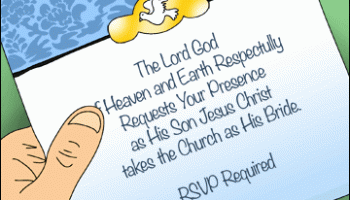
The guests gathered by the servants for the wedding represent both the good and the bad. That is they represent either those who repent their sins or those who have not. The guests accepted the invitation, calling themselves righteous, while claiming to be entitled to His mercy. However, it takes more than just words to claim redemption.
The wedding guest not properly dressed for the banquet is like the person who claims to be a child of God, but his thoughts and actions reveal whether or not his actions match the words. This is like the expression: you may talk the talk, but did you walk the walk. There are many so-called Christians whose focus and service are performed in the name of the Lord, but their true focus is self-promotion. While they may fool some into believing that they are serving the Lord, God knows that they are only seeking to benefit themselves. Unfortunately, for them, at the Lord`s Banquet, their actions and our motives become visible, like their outer garments. Those who are not servants of the Lord will be judged. Those who were not sincere in their faith practices will be bound and ejected from Heaven. Not all who have been invited will be allowed to stay.
From the beginning of time, God has given humanity a choice. The rags worn by the guests are not unlike those worn by all humanity because of sin. Adam and Eve in an attempt to conceal their sin of disobeying God in the garden felt ashamed and chose to wear fig leaves and loincloths in an attempt to conceal their guilt from Him. Let us read about this in Genesis 3:7-10 (ESV): 7 Then the eyes of both were opened, and they knew that they were naked. And they sewed fig leaves together and made themselves loincloths.
8 And they heard the sound of the Lord God walking in the garden in the cool[a] of the day, and the man and his wife hid themselves from the presence of the Lord God among the trees of the garden.9 But the Lord God called to the man and said to him, “Where are you?”[b]10 And he said, “I heard the sound of you in the garden, and I was afraid, because I was naked, and I hid myself.”
Footnotes: a. Genesis 3:8 Hebrew wind b. Genesis 3:9 In Hebrew you is singular in verses 9 and 11
God saw Adam and Eve had known sin because they had eaten the forbidden fruit, which caused them to want to hide their nakedness, so God made them garments to wear, not to conceal their sin, but as a reminder of their sin, as described in Genesis 3:21 (ESV): 21 And the Lord God made for Adam and for his wife garments of skins and clothed them.
When the Day of Judgement comes, and no one knows the day, only those clothed in righteousness will not have their sins exposed, Revelation 16:15 (ESV): 15 (“Behold, I am coming like a thief! Blessed is the one who stays awake, keeping his garments on, that he may not go about naked and be seen exposed!”)
What do we mean when we talk about keeping the garments righteous? Where do these garments come from? We may find our answer in Galatians 3:27 (ESV): 27 For as many of you as were baptized into Christ have put on Christ.
Like the Wedding Banquet Parable, those who accept God’s gift of salvation, by believing His Son, Jesus died for our sins, so that we may accept the Holy Spirit, and wear new garments of righteousness, discarding filthy garments of sin that we inherited from Adam and Eve, and exchange them for pure vestments, free of iniquity, Zechariah 3:3-4 (ESV): 3 Now Joshua was standing before the angel, clothed with filthy garments.4 And the angel said to those who were standing before him, “Remove the filthy garments from him.” And to him he said, “Behold, I have taken your iniquity away from you, and I will clothe you with pure vestments.”
Let us discard our rags of sin, accept the gift of the new wedding garment, and wear it to celebrate the fact that we were not only called by Him but to celebrate that He chose us as guests to His banquet. We only need to RSVP to His invitation.

Let us pray…
Closing Music Special: Lauren Daigle – NOW IS FOREVER LYRIC VIDEO – https://www.youtube.com/watch?v=0kMNKtsEkoc
Benediction Music Special: In Jesus’ Name (God of Possible) – Katy Nichole – Lyric Video – https://youtu.be/R84PqRdZ7_Y
Benediction – (1 John 1:6-7): If we say we have fellowship with him while we walk in darkness, we lie and do not practice the truth. But if we walk in the light, as he is in the light, we have fellowship with one another, and the blood of Jesus his Son cleanses us from all sin. – Amen
